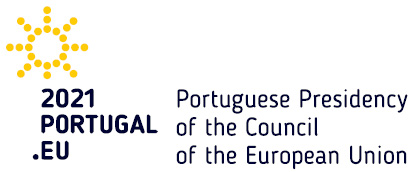01-06-2000: Feira European Council states all SAP countries are “potential candidates” for EU membership
01-06-2003: At the Thessaloniki European Council summit, the Stabilization and Association Process (SAP) is confirmed as EU policy for the Western Balkans
01-10-2004: Council conclusions open up a process for a Stabilization and Association Agreement
01-10-2005: Negotiations launched for Stabilization and Association Agreement
03-05-2006: SAA negotiations called off, because Serbia’s co-operation with the International Criminal Tribunal for the former Yugoslavia has not improved
13-06-2007: SAA negotiations resume, after Serbia commits to cooperating fully with the International Criminal Tribunal for the former Yugoslavia
07-11-2007: SAA with Serbia is initialled
01-01-2008: Agreements on visa facilitation and readmission enter into force
18-02-2008: Council adopts revised European partnership for Serbia
29-04-2008: Stabilisation and Association Agreement (SAA) and Interim agreement on trade and trade-related issues are signed in Luxembourg
19-12-2009: Visa requirement lifted for Serbs travelling to Schengen countries
22-12-2009: Serbia applies for EU membership
14-06-2010: EU members decide to start SAA ratification process
31-01-2011: Serbia replies to Commission questionnaire
14-10-2011: European Commission delivers its Opinion on Serbia’s EU membership application, granting candidate status based on one key priority.
01-03-2012: European Council confirms Serbia as a candidate country
28-06-2013: European Council endorsed the Commission’s recommendation to open negotiations with Serbia
01-09-2013: Entry into force of the EU-Serbia Stabilization and Association Agreement
17-12-2013: Council adopted the negotiating framework with Serbia and agreed to hold the 1st Intergovernmental Conference with Serbia in January 2014
21-01-2014: 1st EU-Serbia Intergovernmental Conference held
14-12-2015: The second Intergovernmental Conference on Serbia’s EU accession sees the opening of two out of 35 negotiating chapters. The negotiations were opened on Chapter 32, dealing with financial control and Chapter 35 (other issues)
18-7-2016: The third Intergovernmental Conference sees the opening of further negotiating chapters: 23 – dealing with judiciary reform and fundamental rights and 24 – dealing with justice, freedom and security
13-12-2016: The fourth Intergovernmental Conference sees the opening of another two negotiating chapters: 5 – dealing with public procurement and 25 – dealing with science and research which was closed immediately
27-02-2017: Serbia opens two chapters at the Intergovernmental Conference: Chapter 20 – Enterprise and Industrial Policy – and Chapter 26 – Education and Culture. The latter was provisionally closed the same day.
20-06-2017: Serbia opens another two chapters at the Sixth Intergovernmental Conference in Luxembourg: Chapter 7 – Intellectual Property and Chapter 29 – Customs Union.
11-12-2017: Another two chapters opened at the Intergovernmental Conference in Brussels: Chapter 6 – Company Law, and Chapter 30 – External Relations.
6-2-2018: The European Commission adopted a strategy for ‘A credible enlargement perspective for and enhanced EU engagement with the Western Balkans’
10-12-2018: The Intergovernmental Conference in Brussels saw the opening of another two chapters: 17 – Economic and Monetary Policy and 18 – Statistics
27-06-2019: The Intergovernmental Conference in Brussels saw the opening of Chapter 9 – Financial Services



